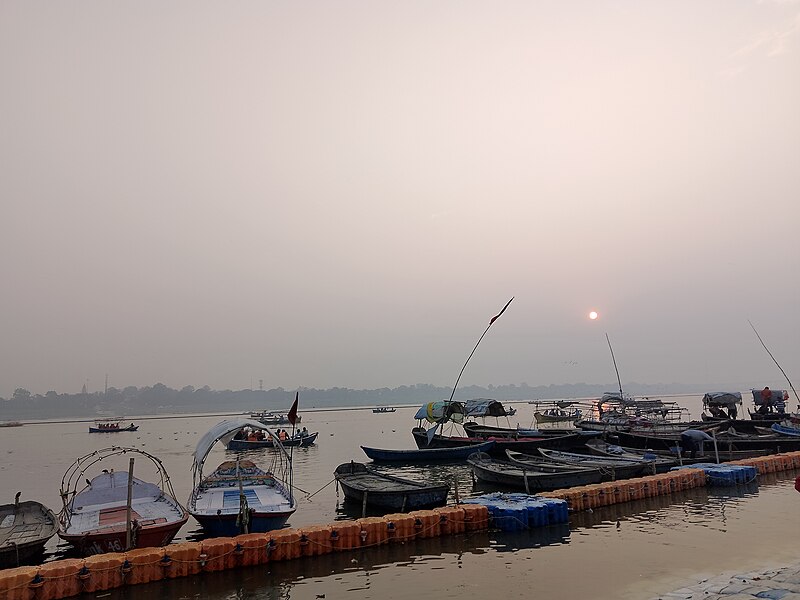Know your Taimur
Ravi Shanker Kapoor | December 21, 2016 11:37 am

Saif Ali Khan and Kareena Kapoor have decided to name their newly born son Taimur Ali Khan Pataudi. The idea is to honor Taimur (1336-1405), Central Asia’s jihadist conqueror. Therefore, knowing a little about the barbaric invader is in order. I reproduce the sack of Delhi (December 1398) in his own words. The following passage is from his memoirs, Malfuzat-i-Timuri, quoted from H.M. Elliot and J. Dowson, The History of India as Told by its Own Historians.
“On the 16th of the month some incidents occurred which led to the sack of the city of Dehlí, and to the slaughter of many of the infidel inhabitants. One was this. A party of fierce Turk soldiers had assembled at one of the gates of the city to look about them and enjoy themselves, and some of them laid violent hands upon the goods of the inhabitants. When I heard of this violence, I sent some amírs, who were present in the city, to restrain the Turks. […] When the soldiers proceeded to apprehend the Hindus and gabrs [Parsis] who had fled to the city, many of them drew their swords and offered resistance. The flames of strife were thus lighted and spread through the whole city from Jahánpanáh and Sírí to Old Dehlí, burning up all it reached. The savage Turks fell to killing and plundering. The Hindus set fire to their houses with their own hands, burned their wives and children in them, and rushed into the fight and were killed. The Hindus and gabrs of the city showed much alacrity and boldness in fighting. The amírs who were in charge of the gates prevented any more soldiers from going into the place, but the flames of war had risen too high for this precaution to be of any avail in extinguishing them. On that day, Thursday, and all the night of Friday, nearly 15,000 Turks were engaged in slaying, plundering, and destroying. When morning broke on the Friday, all my army, no longer under control, went off to the city and thought of nothing but killing, plundering, and making prisoners. All that day the sack was general. […] Excepting the quarter of the saiyids, the ’ulamá, and the other Musulmáns, the whole city was sacked. The pen of fate had written down this destiny for the people of this city. Although I was desirous of sparing them I could not succeed, for it was the will of God that this calamity should fall upon the city.
“On the following day, Sunday, it was brought to my knowledge that a great number of infidel Hindus had assembled in the Masjid-i jámi’of Old Dehlí, carrying with them arms and provisions, and were preparing to defend themselves. Some of my people who had gone that way on business were wounded by them. I immediately ordered Amír Sháh Malik and ’Alí Sultán Tawáchí to take a party of men and proceed to clear the house of God from infidels and idolaters. They accordingly attacked these infidels and put them to death. Old Dehlí then was plundered.
“I ordered that all the artisans and clever mechanics, who were masters of their respective crafts, should be picked out from among the prisoners and set aside, and accordingly some thousands of craftsmen were selected to await my command. All these I distributed among the princes and amírs who were present, or who were engaged officially in other parts of my dominions. I had determined to build a Masjid-i jámi’ in Samarkand, the seat of my empire, which should be without a rival in any country; so I ordered that all builders and stone-masons should be set apart for my own especial service.
“By the will of God, and by no wish or direction of mine, all the three cities of Dehlí, by name Sírí, Jahán-panáh, and Old Dehlí, had been plundered. The khutba of my sovereignty, which is an assurance of safety and protection, had been read in the city. It was therefore my earnest wish that no evil might happen to the people of the place. But it was ordained by God that the city should be ruined. He therefore inspired the infidel inhabitants with a spirit of resistance, so that they brought on themselves that fate which was inevitable.
“When my mind was no longer occupied with the destruction of the people of Dehlí, I took a ride round the cities. Sírí is a round city (shahr). Its buildings are lofty. They are surrounded by fortifications (kala’h), built of stone and brick, and they are very strong. Old Dehlí also has a similar strong fort, but it is larger than that of Sírí. From the fort of Sírí to that of Old Dehlí, which is a considerable distance, there runs a strong wall, built of stone and cement. The part called Jahán-panáh is situated in the midst of the inhabited city (shahr-i ábádán). The fortifications of the three cities have thirty gates. Jahán-panáh has thirteen gates, seven on the south side bearing towards the east, and six on the north side bearing towards the west. Sírí has seven gates, four towards the outside and three on the inside towards Jahán-panáh. The fortifications of old Dehlí have ten gates, some opening to the exterior and some towards the interior of the city. When I was tired of examining the city I went into the Masjid-i jámi’, where a congregation was assembled of saiyids, lawyers, shaikhs, and other of the principal Musulmáns, with the inhabitants of their parts of the city, to whom they had been a protection and defence. I called them to my presence, consoled them, treated them with every respect, and bestowed upon them many presents and honours. I appointed an officer to protect their quarter of the city, and guard them against annoyance. Then I re-mounted and returned to my quarters.”
Picture: Courtesy The Indian Express






























